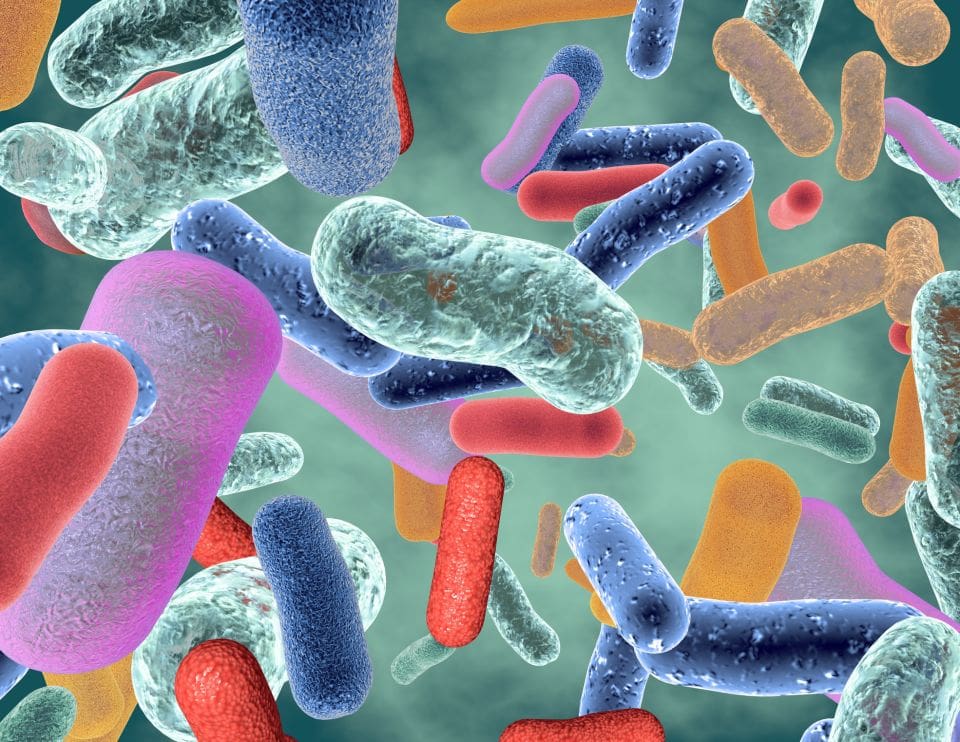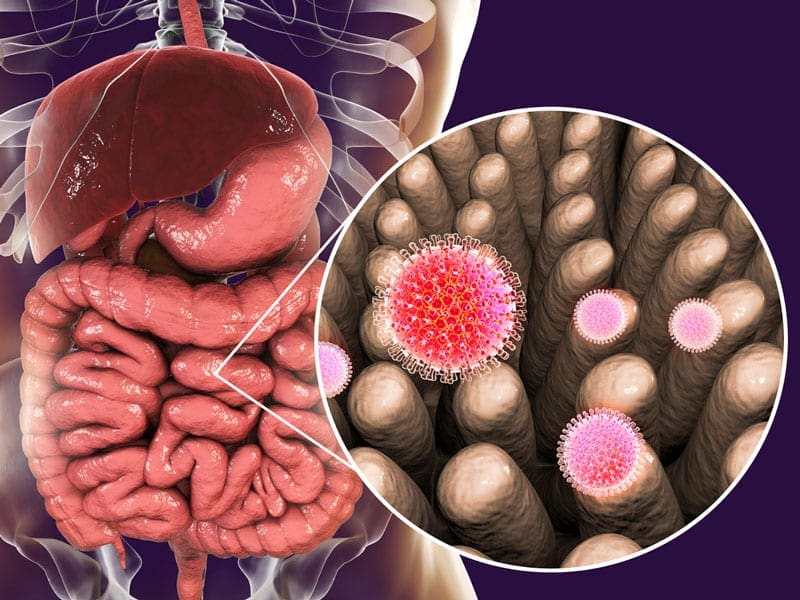Table of Contents
Introduction
The gut system is home to the organs and intestines that ensure that the consumed food is digested and absorbed into the bloodstream while being transported throughout the entire body. The gut system makes sure that the energy, growth, metabolism, and immune support are provided to the body and the immune system, endocrine system, and even the central nervous system for optimal performance. When pathogens enter the gut system, they can cause a variety of gut disorders like SIBO (small intestinal bacterial growth) to cause havoc in the gut system and cause the body to be dysfunctional. In this 2 part series, we will be looking at different treatments for SIBO and SIFO to optimize gut health. In Part 1, we looked at how SIBO and SIFO affect the gut and their symptoms. By referring patients to qualified and skilled providers who specialize in gastroenterology services. To that end, and when appropriate, we advise our patients to refer to our associated medical providers based on their examination. We find that education is the key to asking valuable questions to our providers. Dr. Alex Jimenez DC provides this information as an educational service only. Disclaimer
Â
Can my insurance cover it? Yes, it may. If you are uncertain, here is the link to all the insurance providers we cover. If you have any questions, please call Dr. Jimenez at 915-850-0900.
SIBO/SIFO & The Intestines
In the gut, trillions of bacteria live in the stomach and intestines that help make sure that the food is digested and absorbed into the bloodstream as nutrients. These bacteria help keep the gut and intestines healthy and the body functioning as they help regulate the digestive system. The intestines are the primary reason nutrients are absorbed into the bloodstream. When there is an overabundance of bacteria and fungi species in the intestines causing the gut to be dysfunctional, it’s known as SIBO (small intestinal bacterial overgrowth) and SIFO (small intestinal fungal overgrowth). Part 1 looked at what SIBO and SIFO are and how their symptoms impact the gut. Research shows that SIBO is a commonly diagnosed gastrointestinal disorder that causes maldigestion and malabsorption in the intestines. When there are more bad bacteria than good, it can cause gastrointestinal symptoms like gas, bloating, and abdominal pain in the gut system and overlap with gastrointestinal disorders causing gut discomfort. Hence treatments can help with eliminating SIBO and SIFO out of the intestines and provide relief to the gut.
How To Treat SIBO
Research studies have shown that SIBO is considered one of the manifestations of gut microbiome dysbiosis and can be highly prevalent in IBS (irritable bowel syndrome). When SIBO starts to affect the gut and the intestines, it can cause many gastrointestinal disorders and cause the body to be dysfunctional. There are ways to treat SIBO from reoccurring in the intestines as therapeutic options can help lower the harmful bacterial growth and replenish the good bacteria back in the gut. Once a person utilizes treatment to their gut by getting rid of the excess amount of harmful bacteria, they can continue their wellness journey without gut issues.
Therapeutic Treatments For SIBO/SIFO
There are many ways to ensure that SIBO and SIFO will be eliminated from the body. Research studies show that many doctors will treat SIBO by utilizing treatments more focused on correcting the nutritional deficiencies and eliminating the bacterial overgrowth taking over the intestines. The goal here is to treat the underlying causes, contain the bacterial overgrowth, and provide nutritional support for the gut when SIBO and SIFO affect it. Some of the therapy treatments that are used to treat SIBO and SIFO in the intestines include:
- Diet (low FODMAPs)
- Antibiotic therapy (Weeding)
- Prokinetic agents
- Herbs for weeding* (berberine, oregano oil, wormwood)
- Probiotics (multiple mechanisms)
- Serum Bovine-derived Immunoglobulins (SBIs)
- Enzymes/HCl
- Other(Antrantil, SYN-001:)
Probiotics

Research studies have found that probiotics can provide health benefits to the body. When a person has SIBO in their gut, antibiotics can help eliminate the harmful bacteria; however, that can cause antibiotic resistance and recolonize the harmful bacteria. Probiotics are living organisms with unique beneficial properties that can produce good bacteria to get rid of the harmful bacteria out of the intestines, enhance the mucosal barrier function, and even downregulate inflammatory responses that affect the gut. Probiotics are necessary for promoting gut health as part of the 5Rs program for repairing a dysfunctional gut.
Healthy Diet
Eating healthy food can help many individuals that are suffering from SIBO. Research studies have found that having a healthy diet can provide alterations and induce significant, temporary microbial shifts in 24 hours. Eating the right kinds of food that help promote gut health and offer nutrients to the body can lower the reoccurrence of SIBO from coming back. When a person makes small changes in their eating habits, it can provide excellent results as the body needs these nutrients from whole fruits and vegetables. Other research studies have found that the gut microbiome plays a vital role in human health as dietary patterns and environmental factors profoundly shape gut microbiota. When a person doesn’t change their eating habits and continues to eat processed food, their gut, and the bacteria microbiome will cause chronic issues to pop up over time. When they make those necessary changes in their eating habits, the gut microbiome will produce more beneficial bacteria for the nutrients to be absorbed.
Conclusion
Overall, the gut system makes sure that the bacteria in the intestines take the digested food and transform them into nutrients to be absorbed into the bloodstream and make the body functional. When gastrointestinal disorders like SIBO start to affect the intestines, it can cause the development of chronic conditions to affect not just the gut but also the body. Incorporating a healthy diet with gut-healthy food, taking probiotics, and finding ways to lower gut inflammation can help many individuals take care of their gut microbiota and produce more beneficial bacteria in the intestinal tract. With these treatments, a person can continue their wellness journey without gut issues affecting them.
Reference
Achufusi, Ted George O, et al. “Small Intestinal Bacterial Overgrowth: Comprehensive Review of Diagnosis, Prevention, and Treatment Methods.†Cureus, Cureus, 27 June 2020, https://www.ncbi.nlm.nih.gov/pmc/articles/PMC7386065/.
Chen, Wei Chung, and Eamonn M M Quigley. “Probiotics, Prebiotics & Synbiotics in Small Intestinal Bacterial Overgrowth: Opening up a New Therapeutic Horizon!†The Indian Journal of Medical Research, Medknow Publications & Media Pvt Ltd, Nov. 2014, https://www.ncbi.nlm.nih.gov/pmc/articles/PMC4311309/.
Hills, Ronald D, et al. “Gut Microbiome: Profound Implications for Diet and Disease.†Nutrients, MDPI, 16 July 2019, https://www.ncbi.nlm.nih.gov/pmc/articles/PMC6682904/.
Singh, Rasnik K, et al. “Influence of Diet on the Gut Microbiome and Implications for Human Health.†Journal of Translational Medicine, BioMed Central, 8 Apr. 2017, https://www.ncbi.nlm.nih.gov/pmc/articles/PMC5385025/.
Staff, Mayo Clinic. “Small Intestinal Bacterial Overgrowth (SIBO).†Mayo Clinic, Mayo Foundation for Medical Education and Research, 6 Jan. 2022, https://www.mayoclinic.org/diseases-conditions/small-intestinal-bacterial-overgrowth/diagnosis-treatment/drc-20370172.
Takakura, Will, and Mark Pimental. “Small Intestinal Bacterial Overgrowth and Irritable Bowel Syndrome – an Update.†Frontiers in Psychiatry, U.S. National Library of Medicine, 10 July 2020, https://pubmed.ncbi.nlm.nih.gov/32754068/.
Disclaimer
Post Disclaimer
Professional Scope of Practice *
The information herein on "An Overview Of Therapeutic Treatments For SIBO | Part 2" is not intended to replace a one-on-one relationship with a qualified health care professional or licensed physician and is not medical advice. We encourage you to make healthcare decisions based on your research and partnership with a qualified healthcare professional.
Blog Information & Scope Discussions
Welcome to El Paso's Premier Wellness, Personal Injury Care Clinic & Wellness Blog, where Dr. Alex Jimenez, DC, FNP-C, a Multi-State board-certified Family Practice Nurse Practitioner (FNP-BC) and Chiropractor (DC), presents insights on how our multidisciplinary team is dedicated to holistic healing and personalized care. Our practice aligns with evidence-based treatment protocols inspired by integrative medicine principles, similar to those found on this site and our family practice-based chiromed.com site, focusing on restoring health naturally for patients of all ages.
Our areas of multidisciplinary practice include Wellness & Nutrition, Chronic Pain, Personal Injury, Auto Accident Care, Work Injuries, Back Injury, Low Back Pain, Neck Pain, Migraine Headaches, Sports Injuries, Severe Sciatica, Scoliosis, Complex Herniated Discs, Fibromyalgia, Chronic Pain, Complex Injuries, Stress Management, Functional Medicine Treatments, and in-scope care protocols.
Our information scope is multidisciplinary, focusing on musculoskeletal and physical medicine, wellness, contributing etiological viscerosomatic disturbances within clinical presentations, associated somato-visceral reflex clinical dynamics, subluxation complexes, sensitive health issues, and functional medicine articles, topics, and discussions.
We provide and present clinical collaboration with specialists from various disciplines. Each specialist is governed by their professional scope of practice and their jurisdiction of licensure. We use functional health & wellness protocols to treat and support care for musculoskeletal injuries or disorders.
Our videos, posts, topics, and insights address clinical matters and issues that are directly or indirectly related to our clinical scope of practice.
Our office has made a reasonable effort to provide supportive citations and has identified relevant research studies that support our posts. We provide copies of supporting research studies upon request to regulatory boards and the public.
We understand that we cover matters that require an additional explanation of how they may assist in a particular care plan or treatment protocol; therefore, to discuss the subject matter above further, please feel free to ask Dr. Alex Jimenez, DC, APRN, FNP-BC, or contact us at 915-850-0900.
We are here to help you and your family.
Blessings
Dr. Alex Jimenez DC, MSACP, APRN, FNP-BC*, CCST, IFMCP, CFMP, ATN
email: [email protected]
Multidisciplinary Licensing & Board Certifications:
Licensed as a Doctor of Chiropractic (DC) in Texas & New Mexico*
Texas DC License #: TX5807, Verified: TX5807
New Mexico DC License #: NM-DC2182, Verified: NM-DC2182
Multi-State Advanced Practice Registered Nurse (APRN*) in Texas & Multi-States
Multistate Compact APRN License by Endorsement (42 States)
Texas APRN License #: 1191402, Verified: 1191402 *
Florida APRN License #: 11043890, Verified: APRN11043890 *
License Verification Link: Nursys License Verifier
* Prescriptive Authority Authorized
ANCC FNP-BC: Board Certified Nurse Practitioner*
Compact Status: Multi-State License: Authorized to Practice in 40 States*
Graduate with Honors: ICHS: MSN-FNP (Family Nurse Practitioner Program)
Degree Granted. Master's in Family Practice MSN Diploma (Cum Laude)
Dr. Alex Jimenez, DC, APRN, FNP-BC*, CFMP, IFMCP, ATN, CCST
My Digital Business Card
RN: Registered Nurse
APRNP: Advanced Practice Registered Nurse
FNP: Family Practice Specialization
DC: Doctor of Chiropractic
CFMP: Certified Functional Medicine Provider
MSN-FNP: Master of Science in Family Practice Medicine
MSACP: Master of Science in Advanced Clinical Practice
IFMCP: Institute of Functional Medicine
CCST: Certified Chiropractic Spinal Trauma
ATN: Advanced Translational Neutrogenomics







 Again, We Welcome You.
Again, We Welcome You.
Comments are closed.